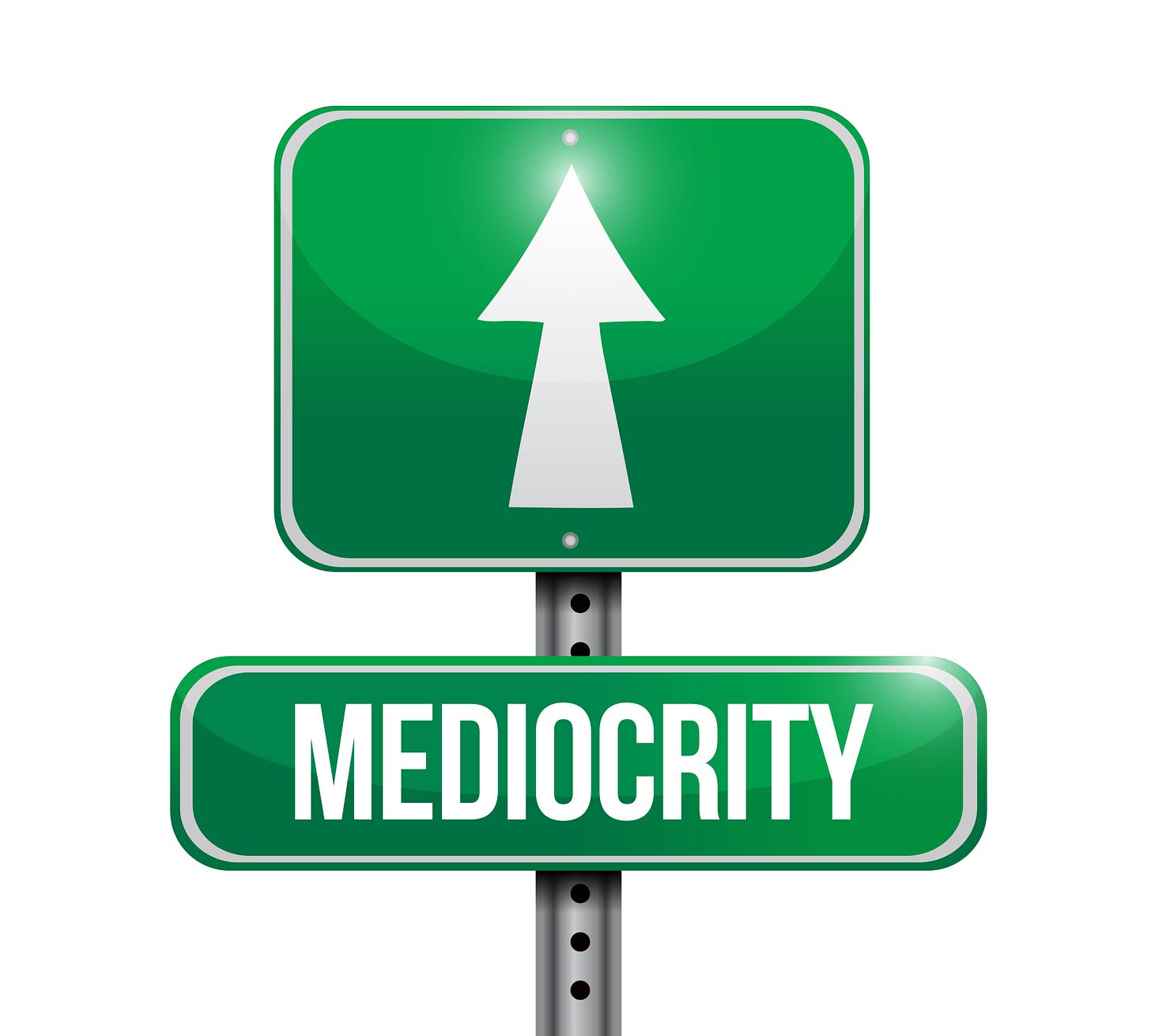The workforce is divided into two distinctly different groups, Owners and Employees. You need to figure out as soon as possible which group you belong in. These mindsets are not interchangeable. They are specific ways of viewing the world and viewing work, one will lead you to economic freedom, the other is a devotion to mediocrity.

This isn’t meant to be an insult to employee minded people, it's just a harsh truth. You will never achieve greatness working for someone else. Likewise, if you decide to strike out and build your own business, but fail to change your mindset, from employee to owner, you will likely fail. Let's explore the reasons why, and what you can do to move yourself out of the employee mindset to the owner mindset.
How do you know what mindset you have?
The first indicator is that you look at your 9 to 5 as a dead end, just a dedication to mediocrity. Instead of looking for ways to get promoted you look for ways to escape. But wanting to escape isn’t enough to prove you have an owner mindset.
High School Group Projects are an Indicator
Take this example for episode 21. Think back to doing a group project in high school. You have five main types.
The organizer-issues all directions and ensures the project gets done. This is the person who has the Owner mindset
The eager worker-This person is happy to do as much work as is needed, provided they are told what to do. These types make great employees, but will never an Owner
The drone- This is the guy that will do basic tasks, but nothing of real responsibility. They exist in the corporate and government world. You don’t trust them with much because the risk they screw up is massive
The Lazy worker-This guy works harder at not doing work then if he just did what he was asked. they are the Wally’s (from Dilbert) of the world.
The missing one- The person in the project that didn’t even bother to show up. These are the perpetually unemployed, floating from job to job.
The One Man Operation
If you’re the control freak that shoves everyone aside on the project and does it all yourself, not only should you be a business owner, but you should be a one man (or woman) business. You don’t have the patience to train people and you’re to untrusting to delegate. Just be a one person show.
This should help you at least establish if you are remotely close to a Owner mindset. Lets got a bit deeper at the differences.
Differences in Owner Vs Employee Mindset
Things like risk, leadership, foresight, prioritization and decision making separate you from an employee mindset.
Risk vs Comfort
In debates between socialists and capitalists you will hear variations of this argument as to why the business owner deserves more money than the workers. And it’s simple, the owner has all the risk. Owners risk their money and reputation for the opportunity to make more money and grow. Employee minded people do not take risks. Employees embrace mediocrity, regular hours, consistent pay, no variation, therefore no risk. It gives a comfortable and predictable life. You will not achieve greatness if you’re afraid of risk.
Leader versus Follower
Real leadership is more than having to be in charge, it's also being accountable for the decisions made. Unlike a manager, which is an employee with some authority but little responsibility, the Owner bears the direct cost of his mistakes, and thus must lead accordingly. Employees await instructions and operate within the boundaries of those instructions. Proactive employees that do tasks without waiting to be told have the potential to be owners. If you’re an employee that need to be prodded with a stick and told step by step what to do, you will always be an employee.
Thinking about today versus thinking about tomorrow
In our podcast we have often criticized the short term mindset. Many people are incapable of thinking about their next meal, let alone planning weeks or months into the future. Owners must be able to think and plan ahead. There is no living in the moment for an owner, every decision made today sets a chain of events for tomorrow. Employees, on the other hand, only need to think as far as their next task. If you want to be an owner, learn to conceptualize tomorrow.
Needs and Tasks versus Opportunity

An owner that spends too much time putting out fires or playing whack-a-mole for every day to day issue will never grow. Good owners will hire and train employees to deal with the minor issues, freeing the owner up to pursue opportunity. Admin tasks will always weigh on an owner's progress. Employee mindset will embrace the admin work, while owner mindset delegates it away so that they can hunt for the next growth opportunity.
Owners need to make the hard decisions
When you have unproductive employees, they need to be fired. Likewise, when times are hard and profits are dropping, you need to be able to let people go. Regardless of their time with the company, if they are not producing profitable results, then they are a drag on the company. The ability to fire people is possibly the hardest skill an owner needs.
In the end, it's about mediocrity versus greatness. Being an employee means forgoing risk for guaranteed comfort and mediocrity. Whereas being an owner means risking failure and financial ruin on the possibility of achieving greatness, wealth and independence, i.e., sovereignty.
So then what happens then if you try to break out of the mediocrity cycle of being an employee, but you fail to change your mindset?
What happens when an Employee tries to be an Owner without changing Mindset?
TLDR: you go back to your 9 to 5, tail between your legs, with a new devotion to mediocrity. Why, because all the things that make you a great and reliable employee utterly sabotage you as an Owner.
Risk aversion
An employee might make risky decisions with an owner's assets. Afterall, the worst that happens is they lose their job. Once that employee becomes an owner, if they don’t change their mindset, they tend to swing to the risk averse extreme. Employees have a safety net in that their mistakes are not their losses. Any mistake an owner makes is instant dollar loss. Owner mindsets understand this, and they weigh risk versus reward, but ultimately always take risk in order to adapt and grow. Employee mindset owners will fear any loss, since they no longer have the safety net. With fear of loss as their guide, they will fail to take risks and miss opportunities, or become obsolete and stagnate.
Delegation
Being an owner is synonymous with being a leader. And leaders do not do all the work, they delegate. Yes, there is the notion of ‘lead by example’, and you will often see owners in the trenches with their employees doing the ‘grunt work’. This is a leadership style, coming from a position of strength. It is not a failure to delegate tasks.
Employee mindset owners, especially ones who never held a leadership or managerial role, often lack the confidence to delegate tasks to their employees. Worse, these same owners usually are afraid of confrontation, so they are afraid to ask employees to do even the bare minimum they were hired for. When your employees aren’t working, they are costing you money. It also means that the owner must pick up the slack. In my town I know SMB owners with this exact problem. They come into the business one to two hours before their employees show up and before the store opens. They stay one to two hours after it closes. Working up to sixteen hours a day. It’s not sustainable. If an owner cannot learn to delegate they will crash and burn. They can forget about ever growing, they won’t even maintain.
There is such a thing as a control freak owner who doesn’t trust their employees enough to delegate. This sort of toxic-owner mindset will be addressed in a future Substack.
Shortsighted
Business owners cannot afford to live in the present, they must always be thinking several months ahead. Farmers, in this regard, are the original business owner. They have to plan not just on this year's crops, but be prepping the soil for next year's crops. Picking which animals to cull from their herds. If they have enough feed to get through a tough winter.
A business owner is no different. Do I increase my marketing budget or replace this machinery? If I invest in new equipment now will that leave me cash strapped for the slow season? Will these improvements have long or short ROI? Every decision must be weighed against the opportunities and hazards of the coming months.


An employee mindset owner lacks forethought. Much in the way they are afraid to take risks, they lack the ability to see how decisions today affect business tomorrow. Cutting my marketing budget before the busy season saves me a dollar today, but costs thousands in never-earned dollars next month. Buying cheap equipment will cost more in repairs then buying quality equipment.
Innovation
Risk taking tends to go hand in hand with creativity, at least, with SMBs. A common trait that brings down an SMB owner is ‘shiny object syndrome’. Where they have to chase every bright idea that enters their head. When you are risk averse and have shiny object syndrome, you may never stay on task.
The sweet spot, of course, is when you can see a realistic end to your shiny object, and assess if that end is profitable or a waste of time. That’s where the real innovation happens.
Employee minded owners tend to have one of two roadblocks to innovation. One is that, having spent their whole life as an employee, they were never forced to think outside the box. They have always relied upon protocol that was established by others and followed a set and proven formula. This leaves them with no creativity to work with. The other is that they lack confidence to chase the shiny object, since they have never successfully explored creativity to a positive end.
Much with failure to delegate, toxic owners will fail to innovate due to ego inflated stubbornness. Those types will be addressed later.
Failure to put Profits First
You are running a business. If you fail to make money, then you go out of business. Full stop. You can’t do anything without being profitable first. Yes, there is a toxic extreme to this, and as I promised already, I will give you a full Substack on toxic owner traits.
Many altruistic, creative people will start a business with the absolute best of intentions. They will have a unique and profitable service/product that could be turned into a money printer. They will squander it by hiring lazy family members or employees that are destructive. But because of (insert personal problem here) they fail to hold the employees accountable and fire them. Those employees become leeches, dragging the business down.
Or they may feel guilty or unworthy of making too much money, so they keep their prices devastatingly low. They fail to save money for emergencies, and never have the ability to grow. It’s not that you have to be ruthless as an owner, you have to be realistic. You have to cut loose dead weight employees. Do not be ashamed to make money, that's the whole point of running a business.
You Need to Deliver Value over Sentiment
We live in a Kidult economy, as mentioned in Competency Crisis™. When your entire focus is on delivering value for the customer then everything will follow. That's how you take care of employees, and that's how you increase profits. One does not replace the other. Delivering value is different from “pleasing the customer” or “the customer is always right”. Delivering value means your product or service is worth what is being paid, and actually works. Delivering value is how you beat out the competition. By doing this you ensure the success of the company, and thus the success of your employees. You can not deliver value while shitting on your employees. Likewise, you cannot take care of your employees if you are unprofitable. Unprofitable companies will shit all over its employees no matter how good the intentions are.
We encourage all employees to learn as much as they can and to strike on their own, start a business and leave the world of wage slavery. That should be no surprise to you. But it is crucial for you to adapt your mindset once you do. You cannot keep the employee mindset or you will fail.
Good luck. Go build something.






